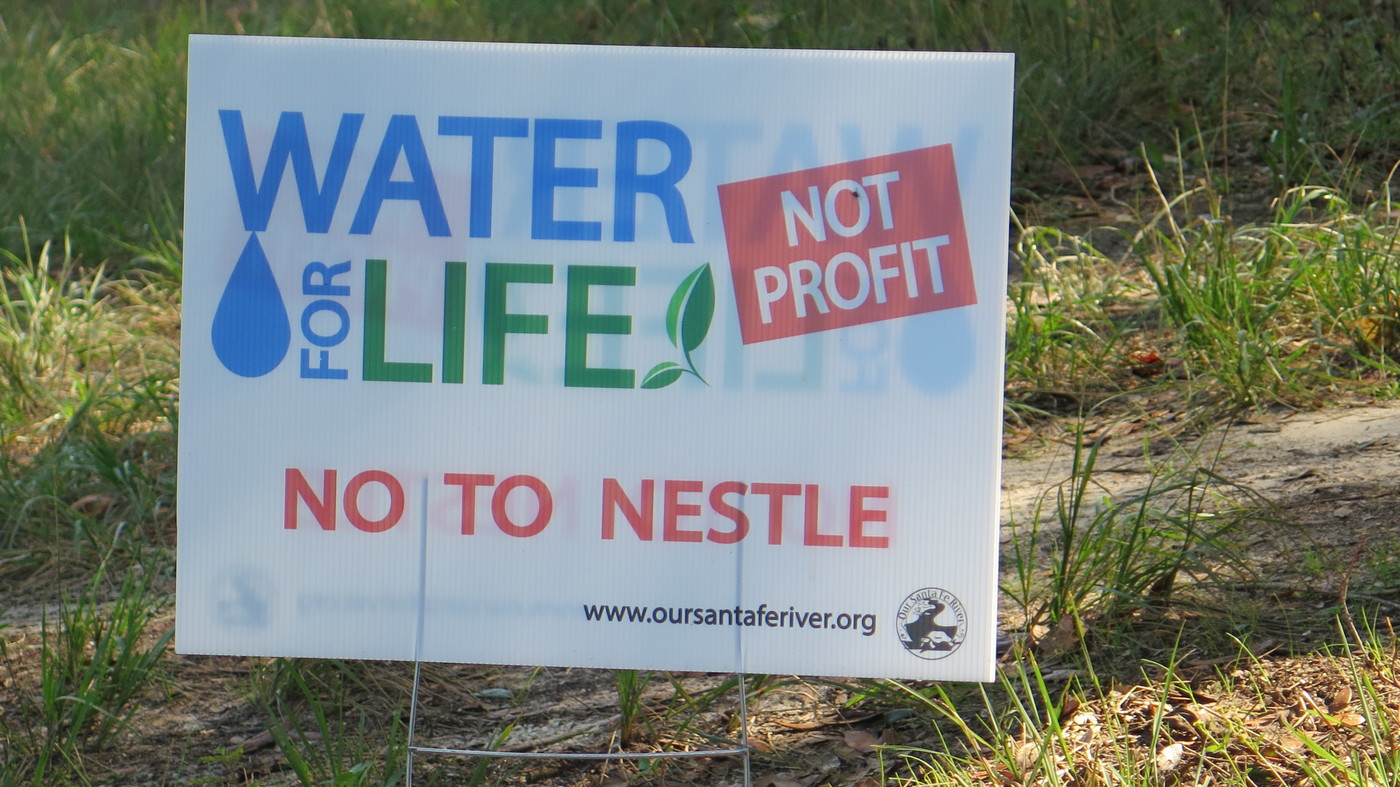11 Dec 2024

Tired Earth
By The Editorial Board

In Florida, Nestlé is taking heat from environmental groups and others concerned about the future of one of the state's most endangered natural resources — its freshwater springs. Florida has more than a thousand freshwater springs, which provide drinking water, important natural habitat and places for recreation. Nestlé wants to begin taking more than a million gallons of water each day from Ginnie Springs, a popular destination in north Florida for swimming, canoeing and tubing.
On a recent day, Steve Walborn yelled "Man overboard!" as he splashed with his tube into the Santa Fe River. The river is fed by several freshwater sources, including Ginnie Springs. Walborn said he has heard about Nestlé's request to begin taking more than a million gallons a day from the spring.
"I think it's probably bad," he says, adding that he doesn't know all the facts and would like to learn more about Nestlé's plans. "It's especially bad if it's going into individual-use plastic bottles. I mean, I know we have to get the water from somewhere. It's a shame it has to be from here."
Nestlé and many other companies have bottled and sold Florida spring water for decades. For the past 20 years, Seven Springs, the company that owns the land around Ginnie Springs, has had a permit allowing it to take nearly 1.2 million gallons a day from its wells. During that time, working with other water bottlers, the company never withdrew more than a quarter of that. Nestlé now wants to increase the daily withdrawal to the full amount, a request that has set off alarm bells among environmental groups.
In nearby High Springs, activists held a demonstration recently opposing Seven Springs' request to renew its water use permit. Nearly 9,000 people have filed comments with the local water management district, most of them asking it to deny the permit request.
"It makes no sense to be giving away water, a million gallons a day, to an out-of-state bottling company when our own river right here is suffering," says Ryan Smart, with the Florida Springs Council.
Four years ago, state water managers determined that the flow in the Santa Fe River and nearby springs had declined below a level that's sustainable and that action must be taken to help the aquifer recover. Studies by an independent group, the Florida Springs Institute, show the flow is down 28% from historical levels.
"It's clear that they're past the point of harm. And when they decide that, the law says they'll go into recovery, which they did," says Bob Knight, director of the institute. "But unbelievably, that recovery strategy includes issuing more groundwater pumping permits."
Seven Springs and Nestlé say their studies show that extracting that much water from the spring will reduce its level by "less than an inch."
The district is evaluating the permit request. Compared with water permits issued for dairy farms and other agricultural users, Seven Springs' permit isn't that large. But activists see Nestlé, a well-known consumer brand, as an opportunity to focus public attention on the need to better manage the state's groundwater. Knight is hoping Nestlé will step up and agree to help safeguard a precious resource.
"They have the financial resources to do that," he says. "What we need to do is actually reduce the amount of groundwater pumping to recover the Santa Fe River springs, and we need to reduce the amount of agriculture that's around these springs that's leading to their pollution."
Environmental groups are pushing for Florida to adopt something it doesn't have now: a water use fee. Right now, the only money the state collects for the water is a one-time $115 application fee paid by the company doing the pumping, Seven Springs. Nestlé won't say how much it's paying Seven Springs for the water. But Smart, of the Florida Springs Council, says that under the current system, companies make millions of dollars from a public resource for which they pay little or nothing.
"We're going to have to stop giving this water away and start charging a reasonable fee for it," Smart says. "And water bottling is a great place to start."
Nestlé says it's committed to using sustainable practices. The company has worked with environmental groups in Florida in the past to protect groundwater from pollution and development. Activists are hoping for something similar at Ginnie Springs.
Source : npr.org
Comment